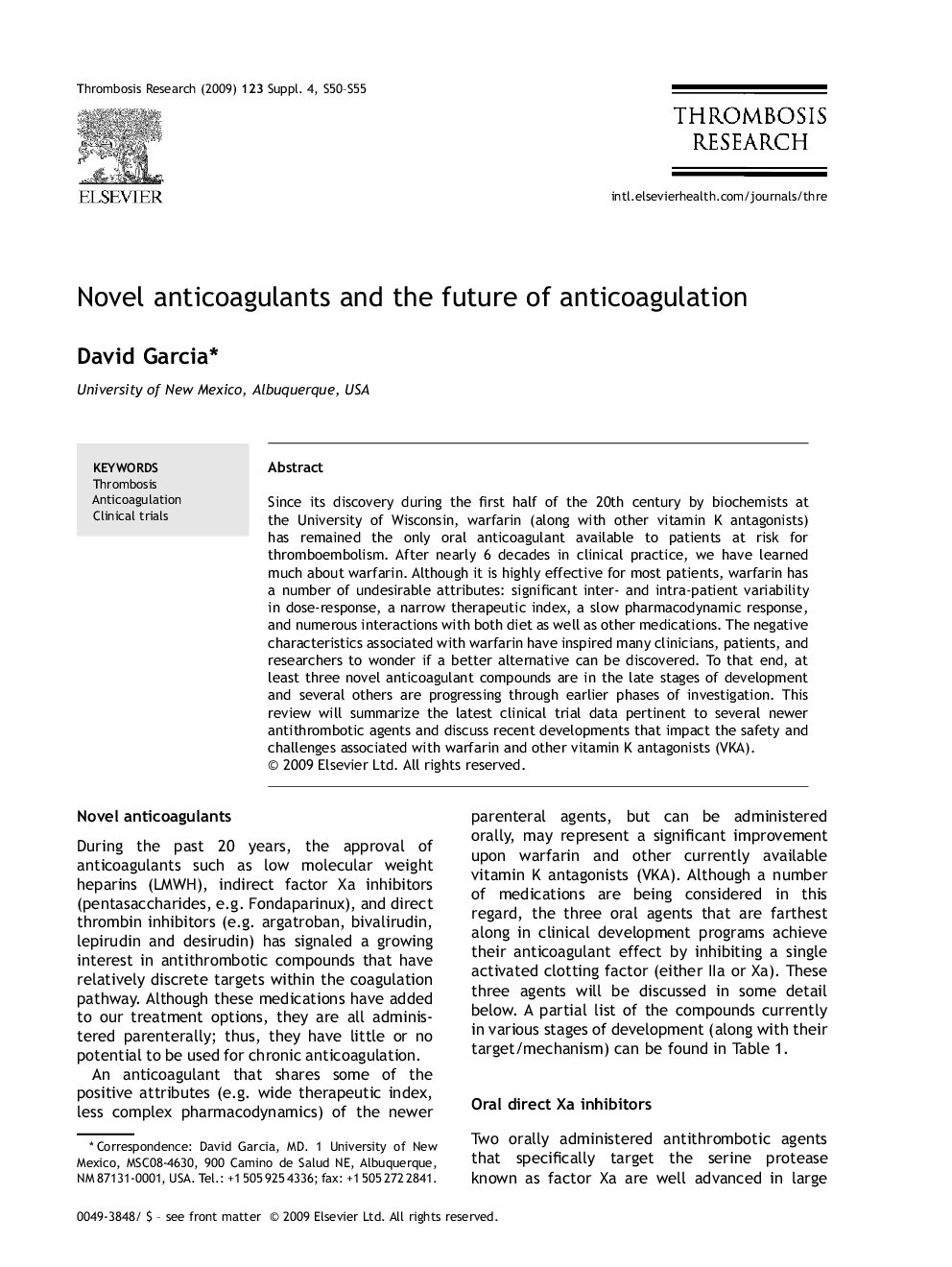| Article ID | Journal | Published Year | Pages | File Type |
|---|---|---|---|---|
| 3029341 | Thrombosis Research | 2009 | 6 Pages |
Since its discovery during the first half of the 20th century by biochemists at the University of Wisconsin, warfarin (along with other vitamin K antagonists) has remained the only oral anticoagulant available to patients at risk for thromboembolism. After nearly 6 decades in clinical practice, we have learned much about warfarin. Although it is highly effective for most patients, warfarin has a number of undesirable attributes: significant inter- and intra-patient variability in dose-response, a narrow therapeutic index, a slow pharmacodynamic response, and numerous interactions with both diet as well as other medications. The negative characteristics associated with warfarin have inspired many clinicians, patients, and researchers to wonder if a better alternative can be discovered. To that end, at least three novel anticoagulant compounds are in the late stages of development and several others are progressing through earlier phases of investigation. This review will summarize the latest clinical trial data pertinent to several newer antithrombotic agents and discuss recent developments that impact the safety and challenges associated with warfarin and other vitamin K antagonists (VKA).
